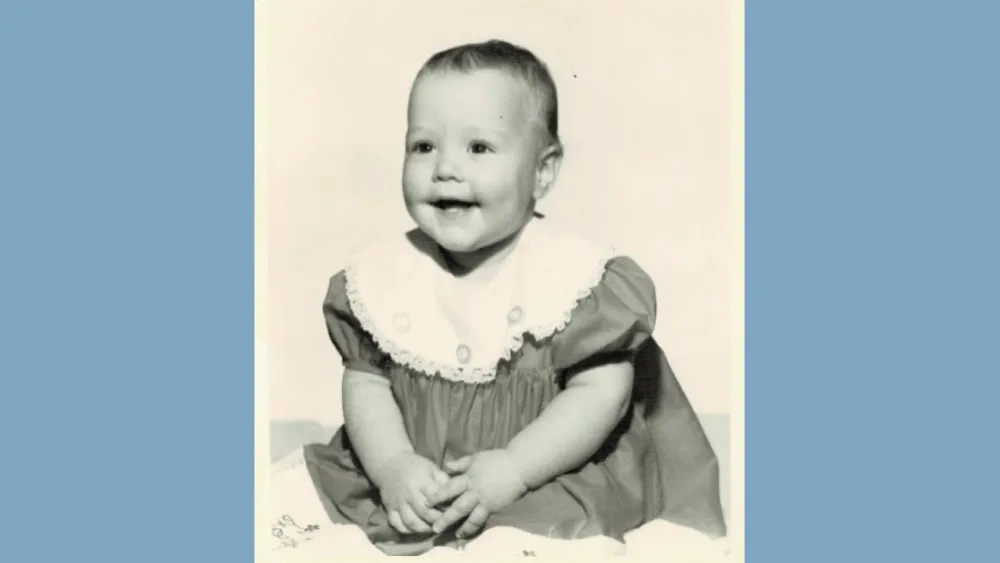




Inspiring Stories
‘A Perpetual Shortage’: Methodist Lab Employee Opens Up About the Blood Donation That’s Given Her 58 Years and More
Published: Jan. 26, 2023

On Oct. 21, 1964, Teresa Maxwell, MT (ASCP), was born six weeks early, weighing just over 5 pounds. She entered the world at 6 a.m. and was immediately rushed away from her parents for a lifesaving blood transfusion.
“My mom’s blood was attacking my blood in utero,” Maxwell said. “So the day I was born, I had to have a complete exchange transfusion. They had to drain all of my blood and give me new blood. Without that transfusion, I wouldn’t have lived.”
Without that transfusion, she added, she wouldn’t have been given the opportunity to be the wife and mother she is today. Her six children wouldn’t exist.
“If you really stop to think about everything that’s happened over the last 58 years, it wasn’t only my life that was impacted by the blood I received. Many lives benefited.”
A Balancing Act of Numerous Needs
Before becoming a technical coordinator at the Methodist Pathology Center-Schenken Pavilion, where she helps oversee the laboratory’s technical function and all bodily fluid analyses, Maxwell spent more than 20 years in trauma care. So from personal and professional experience, she knows firsthand how precious blood is.
“We just had an emergency case at Methodist Hospital in which we needed 50 blood products for one patient,” she said.
“I remember the case she’s talking about,” said Methodist pathologist Sara Rutter, MD, section director for the Methodist Blood Bank. “I was in the operating room for that case. We gave that patient four platelets in the course of that event. On an average day, we have around six or seven in stock. And during emergencies like this, we’re calling our blood supplier, saying, ‘We’ve got an emergency. We need this. What can you give us?’ But in a shortage – like we’re facing now – we’re sometimes told, ‘We don’t have any more to give you.’”
The Methodist Blood Bank, located inside Methodist’s Pathology Center, serves patients at Methodist Hospital, Methodist Women’s Hospital, Methodist Estabrook Cancer Center, Children’s Hospital & Medical Center and Midwest Surgical Hospital.
“We’re responsible for the blood supply for all those patients,” said Dr. Rutter, who ensures that “the right patient receives the right blood products at the right time” and is often called upon to make tough decisions amid a “perpetual shortage.”
“When you have a surgeon in the operating room, that’s their patient,” she said. “And they’re advocating as hard as they can to get what their patient needs in that moment. But when they’re calling for more blood, they may not realize that we have several hundred patients whose needs we’re trying to balance. Maybe we have a patient on life support at Children’s, a patient in critical care, a patient undergoing a cardiac procedure – they all need blood.”
“And cancer patients, too,” Maxwell added. “We often hear about the chemo and radiation side of cancer, but I don’t think people realize that those two types of treatments frequently lead to anemia – loss of blood volume and platelets. Many cancer patients come to us on a weekly basis requiring platelets or a transfusion.”
“A Lifesaving Habit”
The winter season notoriously leads to a drop in blood donations, Dr. Rutter said. And because of the COVID-19 pandemic – when so many people became accustomed to staying home – blood banks across the nation were facing shortages long before now.
But working for Methodist has given Dr. Rutter an immense source of pride and hope.
“We have so many employees – from our blood bank staff right up to the VPs and CEOs – who are donating blood regularly,” she said.
“I’m actually scheduled to donate this week,” said Josie Abboud, president and CEO of Methodist Hospital and Methodist Women’s Hospital.
She added: “It’s important to me that I donate as often as I’m able because I’ve seen the lifesaving impact of donated blood firsthand. You never know when you or a family member may emergently need it. It’s a simple way to help someone in need.”
“It speaks to the heart of The Meaning of Care,” Dr. Rutter said. “It shows a lot of dedication to our patients and a certain understanding of what it actually takes to support them.”
“I get it. It’s a process,” said Maxwell, who often wonders where the invaluable gift she received as a newborn came from. “You have to consciously take the time to make the appointment to donate. But once you make it a habit, it becomes just that – a habit. A lifesaving habit.”
More Resources
- Schedule an appointment to donate blood today.
- First time donating? Here’s what you should know before you go.
- Learn more about the Methodist Pathology Center – Schenken Pavilion.


